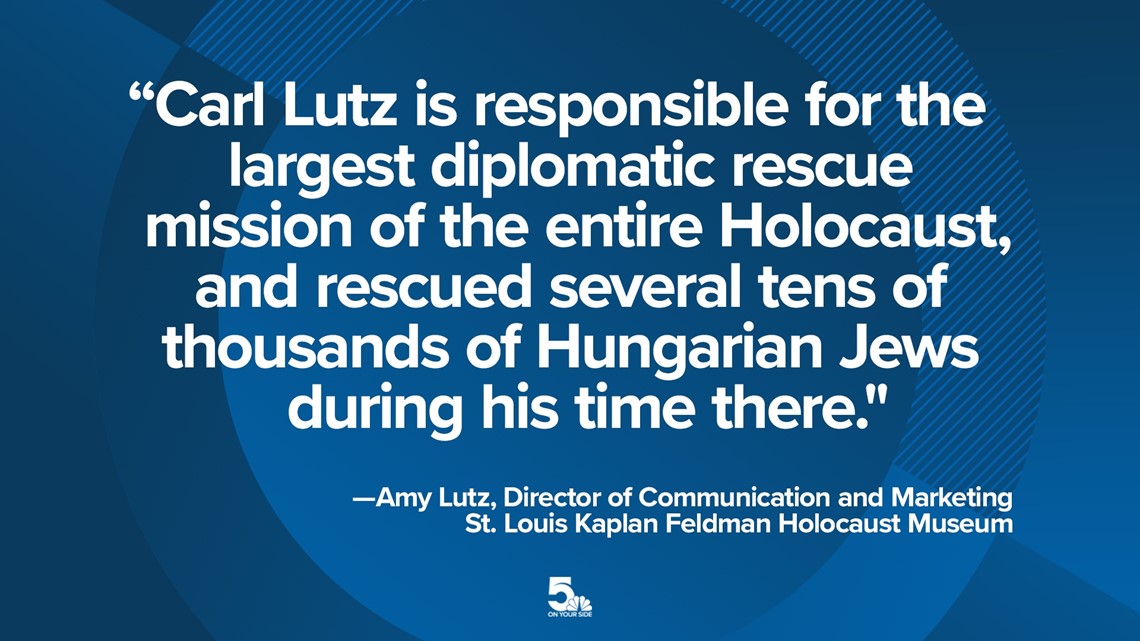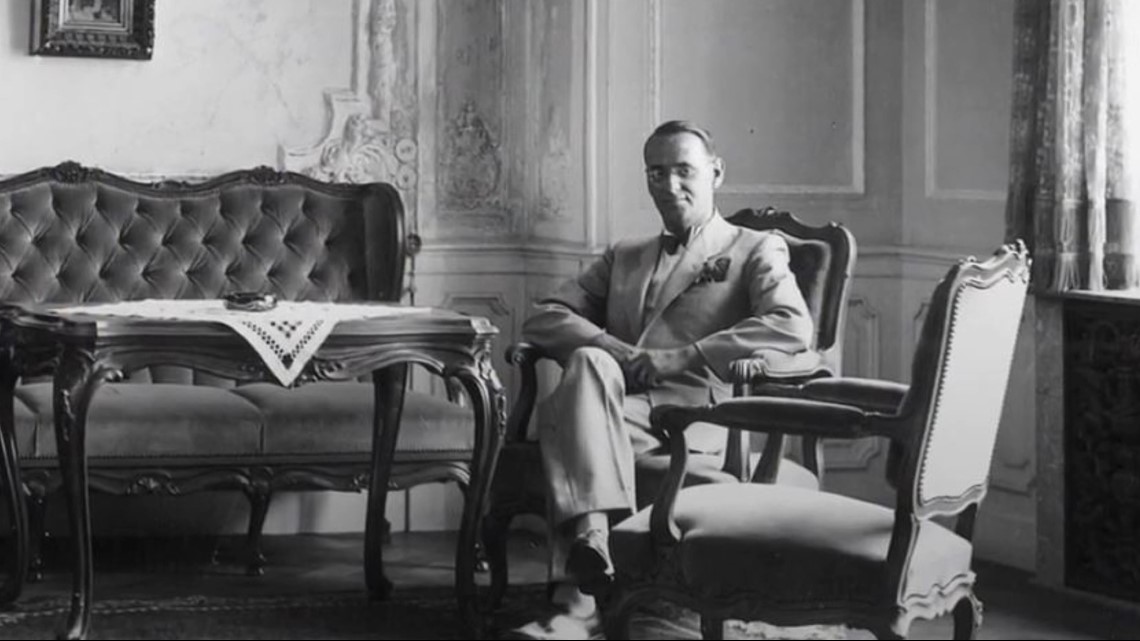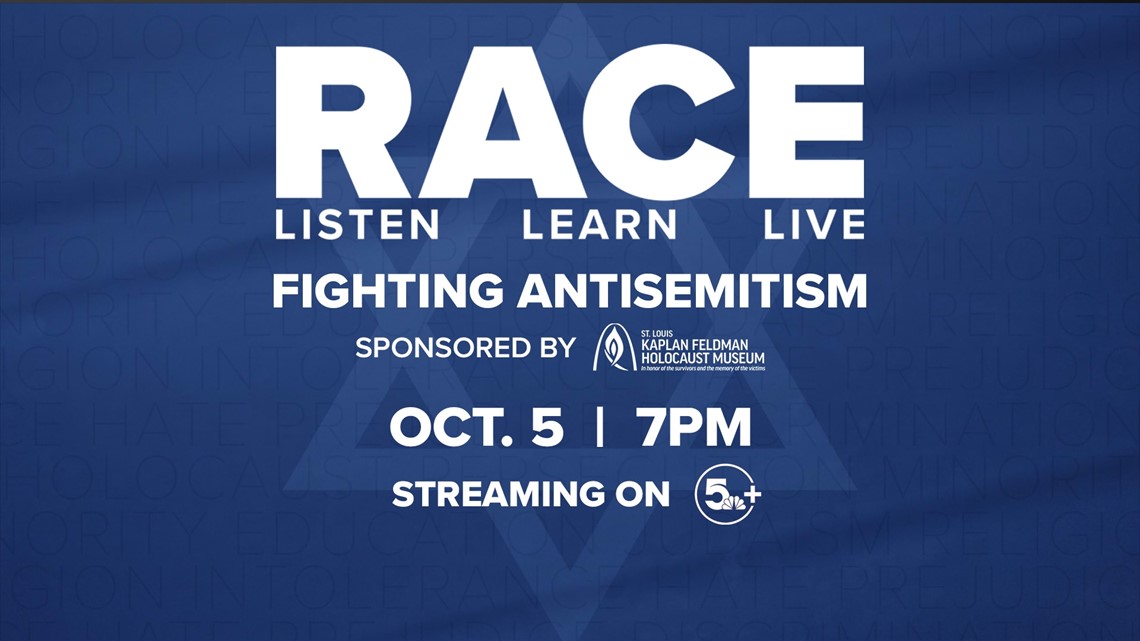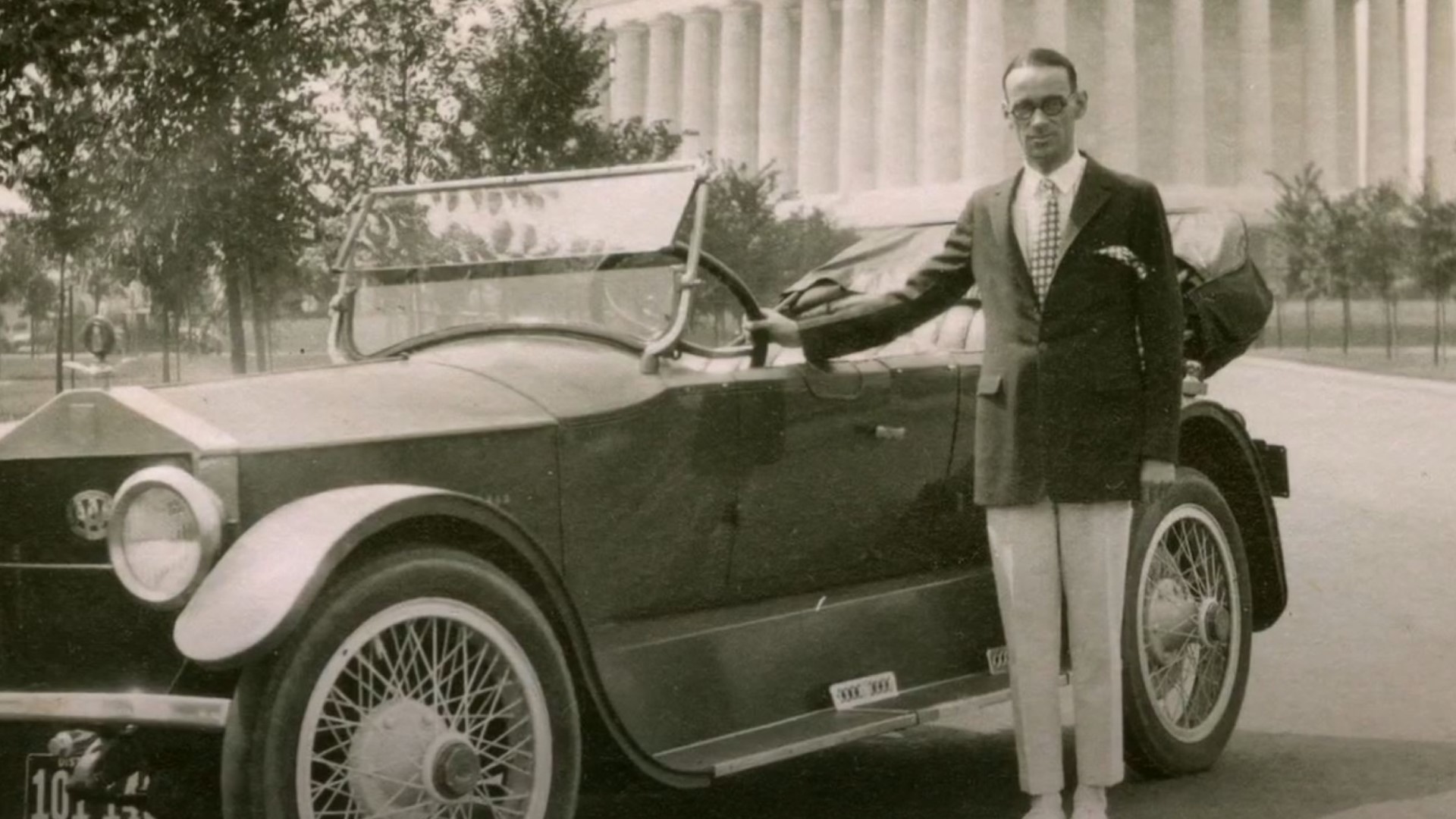ST. LOUIS — In the heart of Budapest, where the Danube River winds through a city steeped in history, a group of travelers from St. Louis embarked on a profound journey into a solemn past. They retraced the footsteps of a man whose legacy still resonates today.
"He was a very ordinary man who really looked at a situation and, step by step made choices that change lives," said Helen Turner, director of education at the St. Louis Kaplan Feldman Holocaust Museum.
Note: This story is featured in our special program, Race: Listen. Learn. Live. Fighting Antisemitism. Watch the special here.
This remarkable man was Carl Lutz, and his story begins in a Swiss village, leading us across continents to the St. Louis area. Lutz arrived in the United States in 1913, not knowing a word of English, and spent around five years in Granite City, Illinois.
His connection with St. Louis deepened in the early 1930s when he entered the diplomatic service, eventually becoming the local Swiss consul.
"His office was 411 North 7th Street," said Amy Lutz, director of communication and marketing at the St. Louis Kaplan Feldman Holocaust Museum. "If you know where the old Ambassador Theater was, he was in the offices above the theater. He actually lived in the old Statler Hotel, which is right around the corner."
Carl Lutz's diplomatic journey then took him to Palestine, a British territory in 1939, just as Germany's invasion of Poland ignited World War II.
"Carl Lutz was tasked as a Swiss diplomat to negotiate the release of about 2,500 or so German people from Palestine back to Germany," said Amy Lutz.
Notably, Carl Lutz also assisted German Jews who feared returning to their home country. This was when he was introduced to "Schutz passes" or protective papers produced by the British, granting their holders exile in Palestine.
By 1942, Carl Lutz found himself in Budapest, where he confronted the horrifying reality of the Holocaust. He bore witness to the mass deportation of hundreds of thousands of Hungarian Jews to concentration camps.
"But the biggest thing he does is he remembers these protective papers, these Schutz passes that he had been introduced to in Palestine," said Amy Lutz.
Possessing these papers meant the embrace of Swiss diplomatic protection, and Carl Lutz distributed these crucial documents throughout Budapest. He designated 76 buildings for Swiss diplomatic safeguarding, providing refuge for thousands of Hungarian Jews.
"So there's a lot of different numbers, and we're still working on the final," said Amy Lutz. "But what we say is Carl Lutz is responsible for the largest diplomatic rescue mission of the entire Holocaust, and rescued several tens of thousands of Hungarian Jews during his time there."


During their visit to Budapest, the St. Louis travelers paid their respects at "The Glass House Memorial Museum," a sacred site commemorating Carl Lutz's actions, where he began arranging false papers and safe houses.
Sadly, Switzerland did not officially acknowledge Carl Lutz's rescue efforts until 1995, two decades after his passing. In a letter, Carl Lutz explained that, as a devout Christian, saving condemned lives was a matter of conscience.
Turner says Carl Lutz's heroism feels larger than life, but he would probably say that he was just doing what anyone would do in his shoes.
From St. Louis to Budapest, Carl Lutz's legacy transcends time.


"And so the message I take from it is, you don't need to be incredibly powerful," said Amy Lutz. "You don't need to have any sort of position or talent or skill to do the right thing. Anyone can do the right thing regardless of who you are."
An ordinary individual who rose to be an extraordinary beacon of hope and compassion, Carl Lutz's story serves as a powerful reminder that even in the darkest of times, one person can make a profound difference.
RACE: Listen. Learn. Live. Fighting Antisemitism
5 On Your Side has produced a special program about the antisemitism in our community and across the country.
RACE: Listen. Learn. Live. Fighting Antisemitism will air at 7 p.m. on Thursday, Oct. 5. The special is sponsored by the St. Louis Kaplan Feldman Holocaust Museum.


Making a Difference
Is someone in your community making a difference? Text us at 314-425-5355 or email us at tips@ksdk.com. See more stories of people Making a Difference here.

